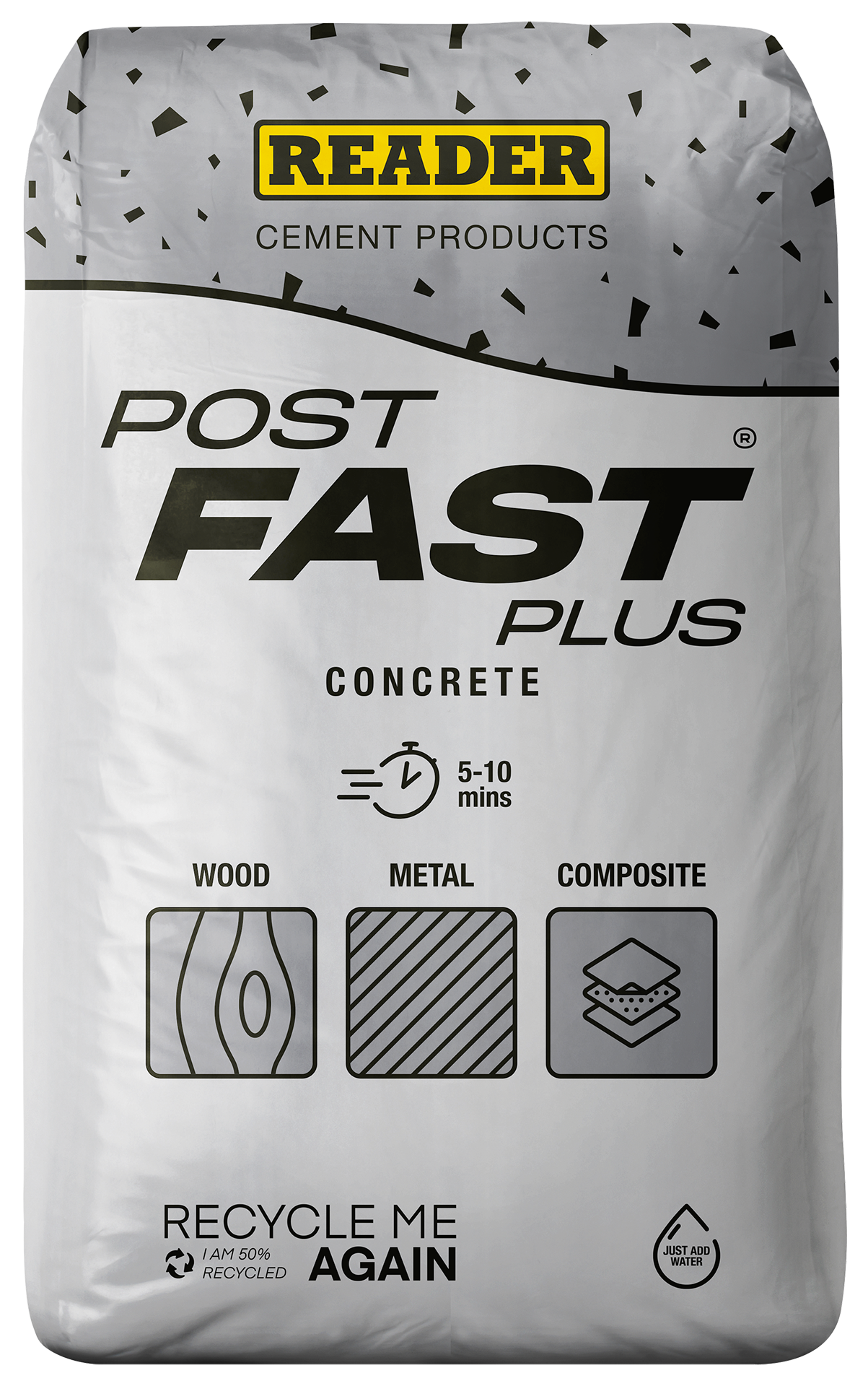
Introduction
When it comes to setting fence posts or installing bollards, choosing the right material can save you time, effort, and money. One of the most common questions we hear at Reader Cement Products is:
“What’s the difference between Postmix and cement?”
In this blog, we’ll explain the key differences, uses, and benefits of Postmix vs cement – including how choosing the right product can help you finish your project faster and more sustainably.
What Is Cement?
Cement is a fine, grey powder used as a binding agent in many construction applications. On its own, it isn’t typically used to set fence posts – it needs to be mixed with sand, gravel, and water to form concrete.
Common uses of cement include:
- Making concrete or mortar
- Bricklaying and rendering
- DIY projects and general construction
What Is Postmix?
Postmix (sometimes called post concrete mix) is a pre-blended, ready-to-use product made for setting fence posts, signs, and bollards.
At Reader Cement Products, our PostFAST® Postmix is:
- Pre-mixed with cement, sand, and aggregates
- Contains additives for rapid setting
- Designed to be poured straight into the hole with water – no mixing needed
Why Choose Postmix Over Cement?
The biggest advantage of Postmix is simple:
Time is money.
Postmix is faster, easier, and cleaner than mixing cement by hand.
With Postmix, there’s:
- No measuring or mixing
- No wheelbarrow or mixer needed
- No waiting hours for curing
You can fix your post and attach fence panels in minutes, not hours. For contractors and homeowners alike, that means projects are completed faster, and you save on labour costs.
Reader’s Sustainable Advantage
At Reader Cement Products, we’re committed to sustainability without compromising performance.
That’s why all our Postmix and cement-based products use a reduced-carbon cement alternative, offering:
- Lower embodied CO₂
- A smaller environmental footprint
- Consistent performance in all conditions
Key Differences Between Postmix and Cement
Here’s how Postmix and cement compare:
| Feature | Cement | Postmix |
| Composition | Cement only | Cement + sand + aggregate + additives |
| Preparation | Requires manual mixing | No mixing – pour and add water |
| Setting Time | Can take hours | Rapid set (5–10 mins) |
| Tools Required | Mixer, shovel, wheelbarrow | None |
| Ease of Use | Requires experience | Suitable for DIY and trade |
| Sustainability | Varies | Reader uses low-carbon cement |
| Labour Time | Longer | Faster = saves money |
When Should You Use Postmix?
Postmix is ideal for:
- Fence post installation
- Bollards and signage
- Outdoor DIY jobs
- Fast-track fencing projects
- Reducing labour time and cost
When Should You Use Cement?
Use cement when you need:
- Custom concrete or mortar mixes
- Brickwork, blockwork, or rendering
- Total control over ratios and consistency
Why Choose Reader Cement Products?
At Reader Cement Products, we manufacture and supply high-performance, reduced-carbon Postmix and cement to merchants, contractors, and private-label customers across the UK.
We offer:
- PostFAST® – Fast-setting Postmix
- Private-label Postmix and cement
- Sustainable, UK-manufactured solutions
- Fast lead times and consistent quality
Conclusion
While cement is a construction essential, Postmix is the smarter choice for fast, reliable post-setting.
By choosing Reader’s PostFAST®, you’re getting:
- Faster project completion
- Lower labour costs
- A reduced environmental impact
Ready to stock or specify Postmix that saves time and cuts carbon?
Contact Reader Cement Products today to find out how we can support your next project – or help you launch your own branded Postmix range.

